Using a centrepin reel is an exciting way of fishing on rivers and lakes. There are numerous centrepin reels available on the market with different features to suit various casting and fishing disciplines, and also the depth of your pocket!
Basically, the design is the same for all centrepins as they all rotate around a central pin or spindle.
The feeling of being in direct contact with fish at all times adds to the excitement of using a centrepin in comparison to the usual fixed spool reel.
Trotting wise, you can’t get a better or smoother presentation when holding the float back.
Here I have selected three J W Young reels to demonstrate the various features to look out for when selecting a centrepin to suit your type of fishing…
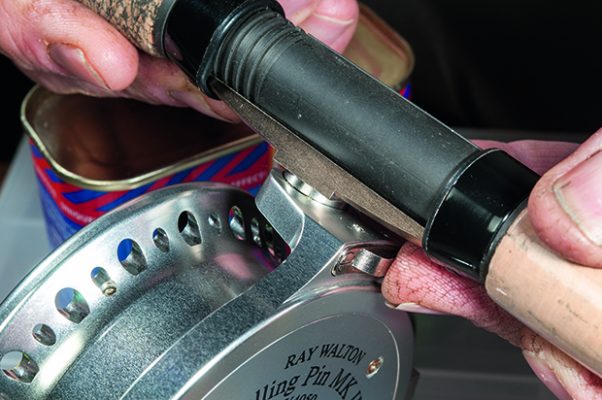
The Ray Walton Rolling Pin
The Ray Walton Rolling Pin (above) has a unique design in the fact that the drum rotates round 90 degrees to facilitate easier casting from the side of the drum, fixed spool style – the spool has a gradually tapered lip which allows the line to come off easily on the cast.
To do this there is a quick release mechanism at the base of the reel seat which, when pressed, allows you to turn the spool.
It is described as a side-casting reel and is ideal when casting longer distances – as soon as you have cast out the drum can then be easily returned to its normal position.
Featuring a smaller 3.75 inch diameter drum, it also has a 1 inch wide spool to allow a greater surface area for the line to lie on, thereby reducing the chance of the line digging in to the line underneath.
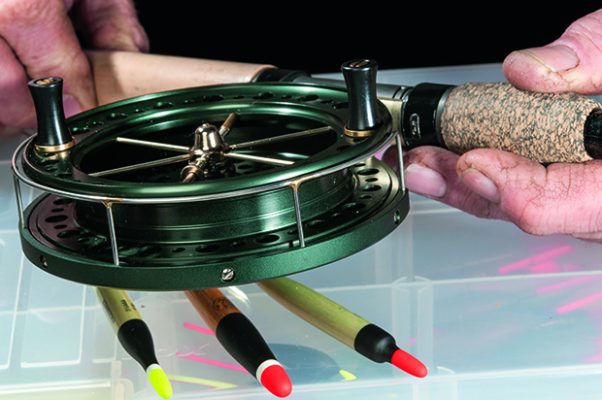
The John Wilson Heritage Trotter
The John Wilson Heritage Trotter (above) is a larger diameter 4.5 inch reel but features a narrower drum at .75 inch.
It is suitable for general trotting work for roach and chub with the larger spool facilitating quick and easy retrieve of the line when long trotting.
The large (but detachable) line guard will stop the line blowing off the spool in windy conditions but you will not be able to ‘bat the spool’ when retrieving your line quickly.
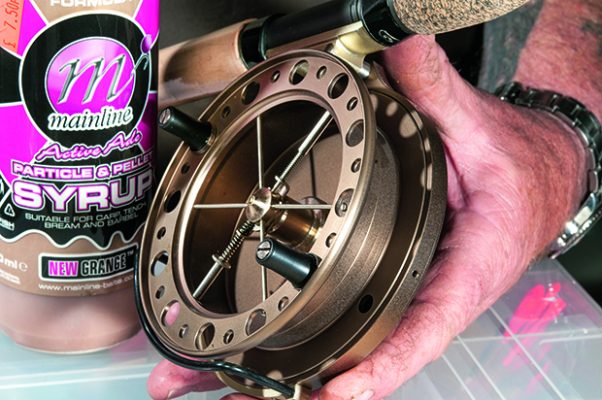
The Purist II Y2051 reel is another large diameter 4.5 inch reel with a 1 inch drum. It features a removable line guard that can be relocated in four different positions.
This robust reel comes into its own when long trotting with heavier floats as the weight around the outside of the drum increases the inertia in the spool to facilitate quick and easy retrieve of the line.
It would also be ideal when fishing in the margins for carp when quick takes would be expected – the line can be quickly and smoothly released, gradually increasing the pressure by simply putting your thumb on the rim of the spool to get the fish to slow down.
Although you would normally be holding the rod when fishing like this, there is a ratchet that can be engaged which would give you an extra early warning!
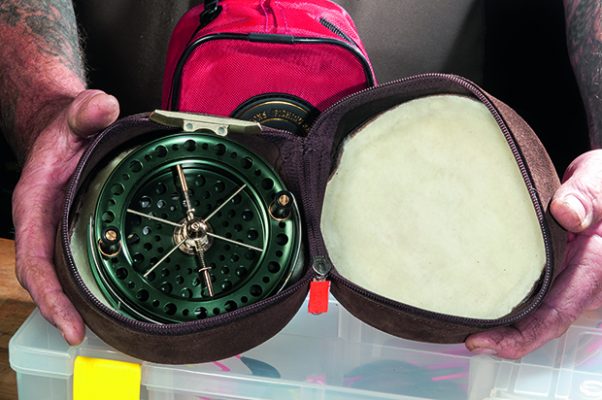
Use a a well-padded reel case for your centrepin.
Centrepins can be expensive so it makes sense to protect them from damage by using a well-padded reel case when not in use.
If you tend to keep your rods tackled up ready for action, there are protective sleeves available which fit around the rod handle and reel, and full sleeves encasing the complete rod and reel.
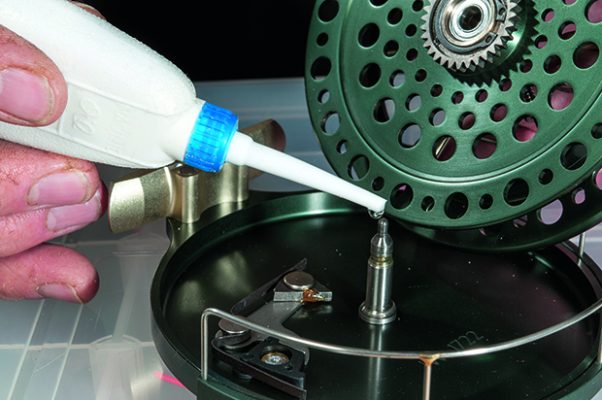
Apply a little light oil to ensure peak performance of your centrepin reel.
Little maintenance is needed on centrepins for them to continue to run freely.
Remove the drum and, using a soft cloth, wipe the accumulated debris from the inside of the back plate and apply a little light oil or sewing machine oil to the central spindle and the moving parts of the ratchet.
Never use WD40 as it removes too much of the grease, making the reel rumble and sound noisy.
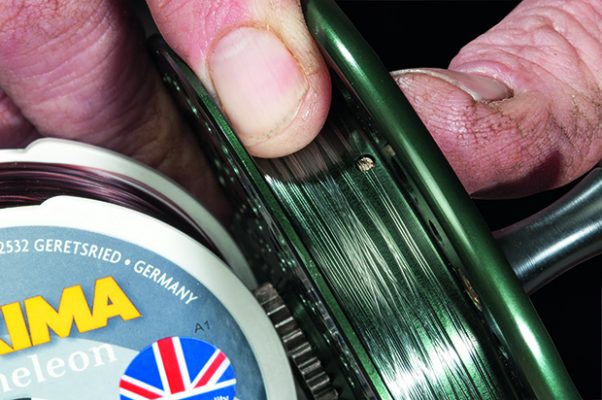
The drag can be fine tuned.
Most of the Young centrepins feature a micro adjustable drag that can be fine tuned by turning the outer sleeve located on one of the spindles.
This allows you to adjust the pressure of the disc acting on the central pin, fractionally slowing down the rotation of the spool.

Use a minimum amount of line on the spool…not loads!
Only load the minimum amount of line that you need on the spool – 50 yards is ample for most fishing eventualities.
Any more and the line will dig in to the underlying line, and on your next trot down the line will not flow off smoothly.
When tying the line on the spool make sure that you locate the knot in the small hole drilled in the spool – this ensures that the line does not snag on it when trotting.
How We Can Buy England Soccer Jersey by Online?

Diversification of soccer shoes

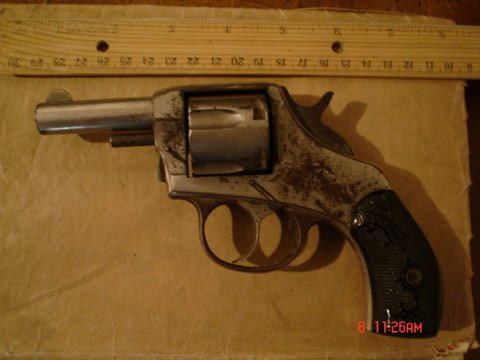
Copyright © www.mycheapnfljerseys.com Outdoor sports All Rights Reserved